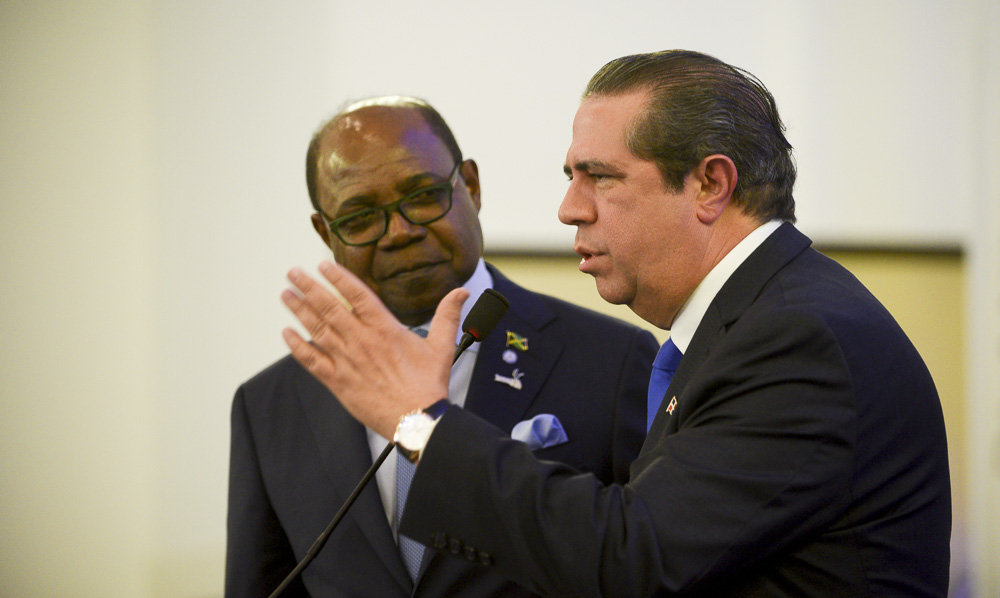

Photo: Ryan
1. The art of hospitality
Perhaps one of the most beautiful, humbling things about the Cuban culture is that a Cuban will give you the clothes off his back and the shoes from his feet if it makes you more comfortable as a guest in his country. Cubans are proud, extremely generous people and want to offer you their absolute best. They’ll pull out the good china, the whitest table cloth, and they won’t hesitate to spend a month’s salary to create a beautiful meal for visitors.
While this can be overwhelming, one of the biggest lessons I’ve learned in Cuba is how to graciously accept the hospitality. I thought I was being polite on one occasion by turning down a cup of coffee, as there wasn’t enough for everyone at the table. After much loud arguing I could hardly understand, someone turned to me and said in English, “Don’t reject the old lady or she’ll go nuts!” At that moment I realized what true hospitality is.
2. How to make things last forever
Ever notice the quintessential image of Cuba includes an old-timey, American-made car? It’s not that Cubans possess romanticized ideas about cars; they’re not simply madly in love with the 1920s. They maintain and drive these cars out of necessity. In 1959, the year of the Cuban revolution when Fidel Castro came to power and nationalized the entire market, he quit importing new cars except for government use, effectively making it impossible for civilians to buy cars made past that year.
Thus, until 2011 (for 52 years!), it was a necessity to keep those old cars running. This has been especially true for people, like taxi drivers, whose livelihood relies on the car being in working condition. New parts compatible with such old models are hard to come by, requiring a lot of creative thinking and innovation. And it’s not just with cars that Cubans get creative in salvaging things until they’re blue in the face.
Your shower faucet breaks? Jimmy a new one out of an old plastic bucket. Your sheet rips? Tear it apart and use it as cleaning rags. Nothing, and I mean nothing, gets thrown away in Cuba. Living with a Cuban, it’s been a struggle. We have a “Cuba” pile, where things that I’d normally throw away or donate will instead be taken to Cuba where they’ll probably live another ten, or twenty, or 52 years…
3. Appreciation of the little things
As mentioned above, Cubans don’t get nice, new things very often. Perhaps as a result of 52 years of using and reusing items, and after 52 years of not having enough money, ever, for anything that isn’t a necessity, it’s ingrained in the Cuban sentiment to appreciate the little things. Cubans are extremely gracious people and will revel in a new pair of jeans. They’ll drop their jaws at new cars, and they’ll show up in droves for a look at a neighbor’s new computer. But these things aren’t the only things they appreciate. In a day and age when many, if not all, Cubans have relatives who live in other countries, time spent together is as valuable as gold.
4. Privacy and personal space are overrated
There is no such thing as privacy or personal space in Cuba. I, as a born and raised American, have a hard time adjusting to this every time I go back to Cuba. As Americans, we’re used to plenty of space from people, easy escapes if things get too tense, and, in many cases, our own bedrooms. In Cuba, as with buying cars, it has been nearly impossible, if not outright illegal to buy and sell homes for the better part of a century.
Because of this, there is nowhere to go when you reach the typical age for moving out of your parents’ house. Many generations share homes in Cuba, and usually when a couple gets married, the new spouse moves right on into an already cramped home. In many homes, doors don’t even exist and are instead substituted by a shower curtain or flimsy plastic barrier. Also, being the tropical climate that it is, many homes don’t even have substantial windows, as people prefer to keep the breeze coming through their homes.
You hear your neighbor’s conversations, your local panhandlers meandering down the street yelling “Huevos! Pan!”, the couple fighting down the street, and the news broadcast floating in from upstairs. Neighbors show up without announcement, often staying for hours on end, leading to a common saying, “Hechale agua a la sopa, que tenemos visita”, or, “Put more water in the soup, we have visitors”.
With Cubans, the more the merrier. Knocking is a seldom practiced and usually completely ignored courtesy. And in the end, though you practically never have alone time, it really is a beautiful experience to be surrounded constantly by community.
5. How to take your time
You may have heard it before, “They’re on Cuban time” and it is oh so true. I once made plans with a family of Cubans to leave for a trip to the beach at nine in the morning. After breakfast, coffee, cleaning up, talking to the neighbors, an impromptu visit from an unannounced family member, lunch, and arranging for a ride, believe it or not, we didn’t leave the house for the beach until 1 pm. No joke.
Cubans have no concept of time, and though frustrating for Americans who often plan out every moment of their day from the moment their alarm goes off to the moment they settle in for bed, there is something beautiful to be learned about taking time, not looking at the clock, and just enjoying the day. Also, because of Cuba’s past as a Spanish colony, though they don’t have such an institutionalized “siesta” time like they still practice in Spain, the practice of eating dinner much later in the day has remained.
Many nights, Cuban families don’t sit down to eat around the dinner table until 9 or 10 pm. Follow dinner with coffee, a drink, a game of dominoes, and of course plenty of talking, and you usually can’t expect to be in bed any time before midnight. Cubans don’t look at the clock, and don’t think about their heavy workday the following day.
6. How to break the rules and not get caught
Because things are regulated so tightly in Cuba, and the country is fraught with financial problems, people are very poor. Salaries for regular jobs are laughable for the majority of families and non-existent for many. Asking a Cuban to explain something simply will become the bane of your existence if you approach it from an American standpoint. There is no simple way to do anything with Cubans.
This is because Cubans are generally hiding something, hinting at something, or completely avoiding your question. Around every corner, there is someone buying something from the black market, bending the rules, or skirting around them and generally never admitting to it, even behind closed doors. While there are civilians affiliated with the government in every neighborhood, Cubans still tip-toe around them in the name of changing currencies, getting cell phones unlocked, or finding the cheapest deal. Breaking small rules is a way of life in Cuba and often a necessity.
7. How to have pride for your nationality
This may be a result of heavy government propaganda, or because of a history fraught with national struggles, but Cubans are proud people. They’re proud of Cuba, and in some cases (though not all), even though they may not agree with the Castro family’s continued rule, they are still proud of how Fidel came into power, ending the rule of Batista. Cubans operate in a system that is largely communist. Due to this, things like the national anthem, journalism, and even the way in which people shower is monitored and administered with strict force. Though not ideal by many standards, Cubans are proud of their nationalism.
A Cuban friend once listened to Maya Rudolph’s hilarious rendition of the “Star-Spangled Banner” (If you haven’t seen it, watch here), and told the story of a time he was severely punished in secondary school when he added a “Bum ba da bum” to the end of the Cuban national anthem. However rigid the system, he mentioned that he now realizes the value in respect for national figures and pride in one’s country, noting that Americans hodgepodge all kinds of renditions of our country’s anthem together, signifying, in his words, “A lack of pride over what should be important to your nation.”
![]()

Posted In:
Destinations:
Powered by WPeMatico











